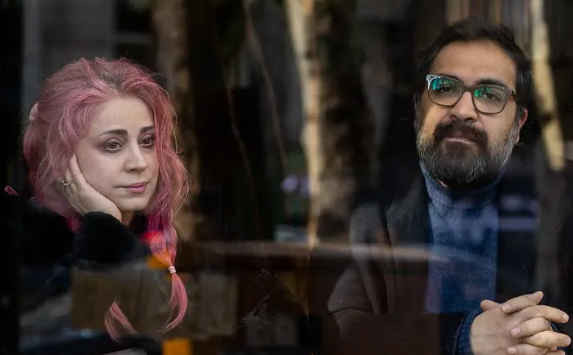Brooklyn’s Brick Theater, which New York Times columnist Larry Rohter describes as having a “taste for the offbeat and quirky,” is presenting a dozen contemporary theatrical works during March that are written either by Iranian playwrights still in Iran, those who have escaped into exile, or the new generation of Iranians raised in the United States.
The play’s themes range from light humor to allegories to darker postmodern works. While a few pieces are in Persian, most are in English or have been translated.
In other words, the festival is “a patchwork, covering a whole range of things and with  different stories to tell,” says festival organizer and a Brick founder, Michael Gardner.
different stories to tell,” says festival organizer and a Brick founder, Michael Gardner.
“For someone like me, this is more than exciting,” Nassim Soleimanpour, 29, told Rohter in a phone interview from Tehran. “It’s about me writing something down here, and an actor in New York doing it. It’s like, ‘Oh my God, this is connecting us all together.’ It’s a very different experience, and I like it.”
Soleimanpour wrote “White Rabbit, Red Rabbit,” a piece that is “replete with murders, suicides and rabbits,” says Gardner. The piece stands in contrast to another festival presentation, “Ka,” by Siavash Pakrah, which follows the discussion of three servants who have been entombed with their master’s body in ancient Egypt as they decide their next steps.
Gyda Arber, who is directing the play, told Rohter, “I read [‘Ka’] as an allegory for the current situation in Iran and thought it was something that could never get through the censors there, but somehow it did. To distance himself from the political meaning of the play, Siavash had to make it look and sound very Egyptian when it was produced in Tehran. But he told me an ideal staging would have a more generic look and feel, with a sense of ‘Waiting for Godot,’ and that is the tack we are taking.”
Arber and her mother, Wendy Coyle, who worked as a translator for many years in Iran prior to the revolution and who translated “Ka” for its latest performances, scouted it and the two other plays directly from Iran during a trip there last year. Despite the censorship restrictions there, they were excited to see the theater scene still quite active.
“All the performances we were able to see were sold out, and afterwards people were milling about in the theater to discuss the piece,” said Coyle.
The Brick Theater aims to generate similar interest with its presentations from Iranian artists in exile and Iranian-American artists. Among the former category is New York-based avant-gardist Assurbanipal Babilla’s “Something Something Uber Alles” which follows the bizarre tale of a man who looks like Hitler.
To represent the experience of Iranian immigrants in the United States, the festival presents Safa Samiezade-Yazd’s one-woman show, “Cover Girl,” on her use of a veil as a “comfort zone” in the strange St. Louis, and comedian-writer Negin Farsad’s cultural misadventures during a cousin’s wedding in Iran in “Bootleg Islam.”
While many of the works follow traditional live performance format, the festival will also include unique highlights such as an online video conference between two virtual friends in the US and Iran called “Pen Pals Meet: A Conversation between Eliza and Salar” and a short preview of the show “Aviary,” which combines the dance and storytelling wonder of Scheherazade and her sister with that of Victorian age women.
The festival will also showcase the exiled Reza Abdoh, who died of AIDS-related causes in 1995, with videotaped performances of his works “Quotations from a Ruined City” and “The Hip-hop Waltz of Eurydice.” Several of the works will also be followed by discussions and panels with the creators and performers.
Amidst all the theater pieces, the festival will also recognize the Iranian New Year with a special pre-Now Ruz celebration on March 13. The party will include food, music and poetry to truly bring as much Iranian culture as possible to unfamiliar audiences.
Regarding the impact of the Iranian Theater Festival, Samiezade-Yazd, 27, said, “My entire childhood was spent in the shadow of the hostage crisis, with the FBI keeping tabs on my father,” a Khomeini-loyalist. “I welcome a chance like this to explore the cultural side of Iran, which has been overshadowed by politics for so long.”
The festival began March 3 and runs through March 26 at the Brick, located in the Williams-burg section of Brooklyn. The full schedule is available at www.bricktheater.com.























